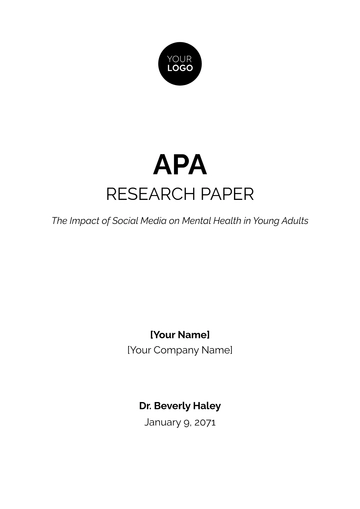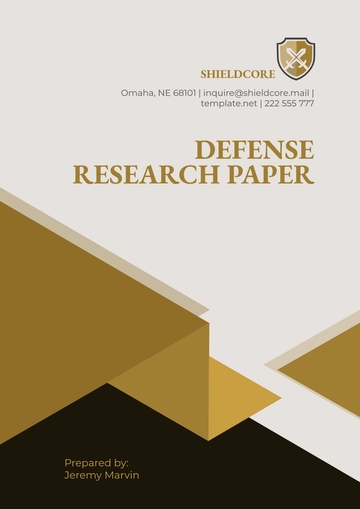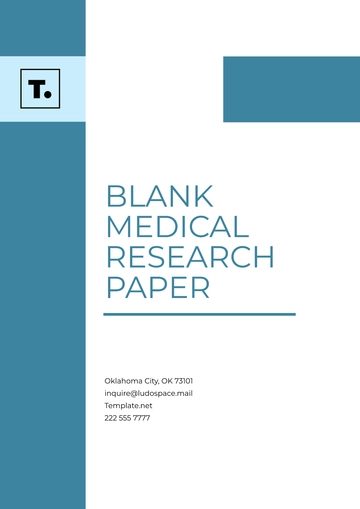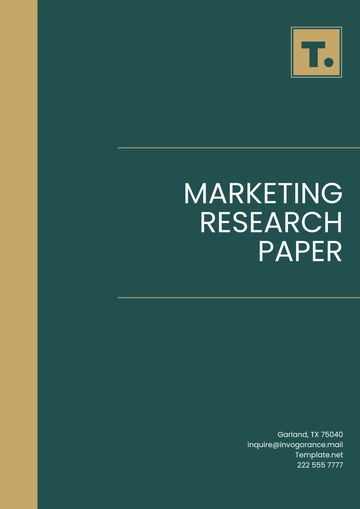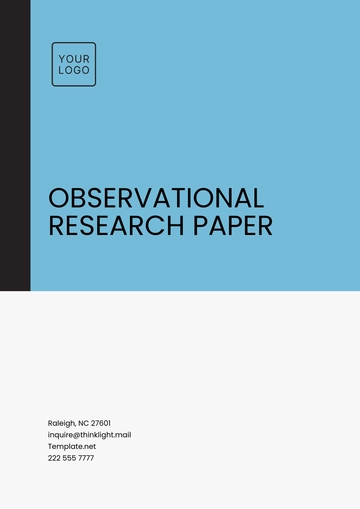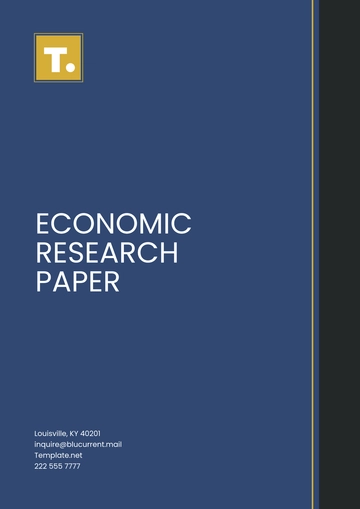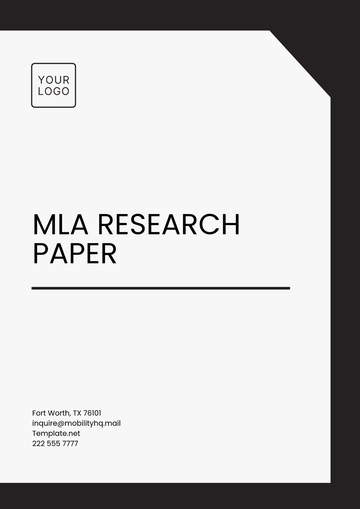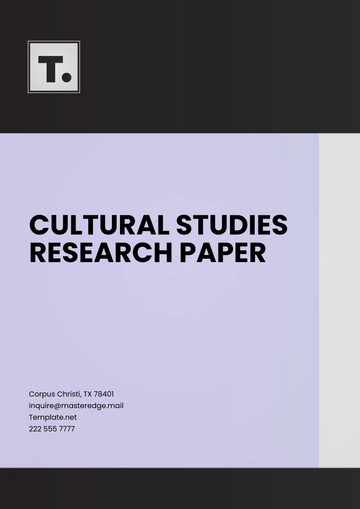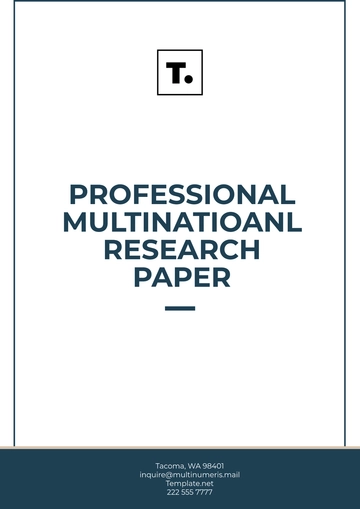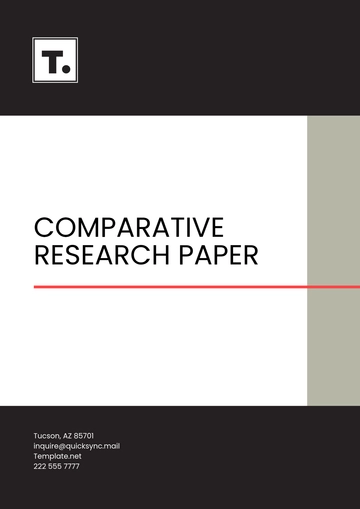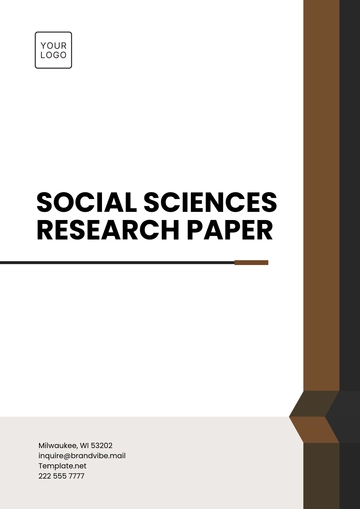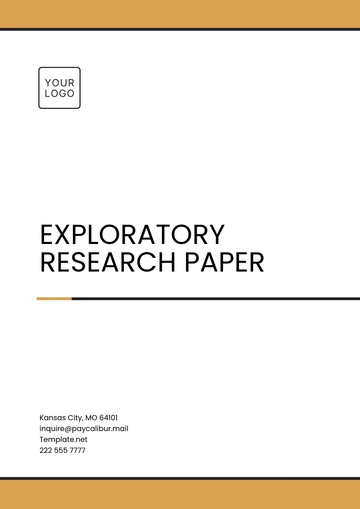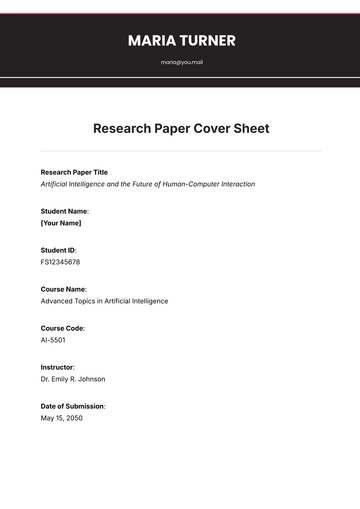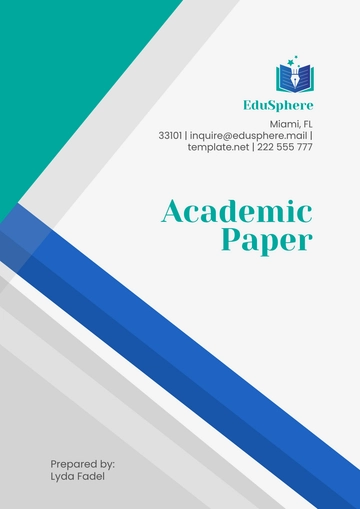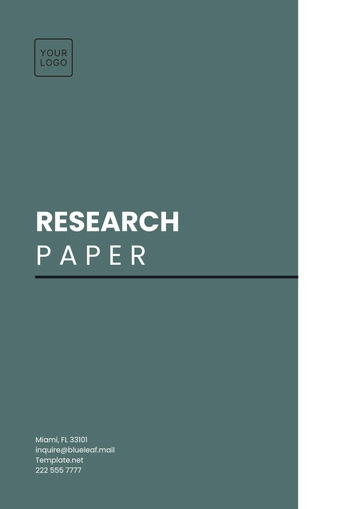Free Technology and Society Research Paper
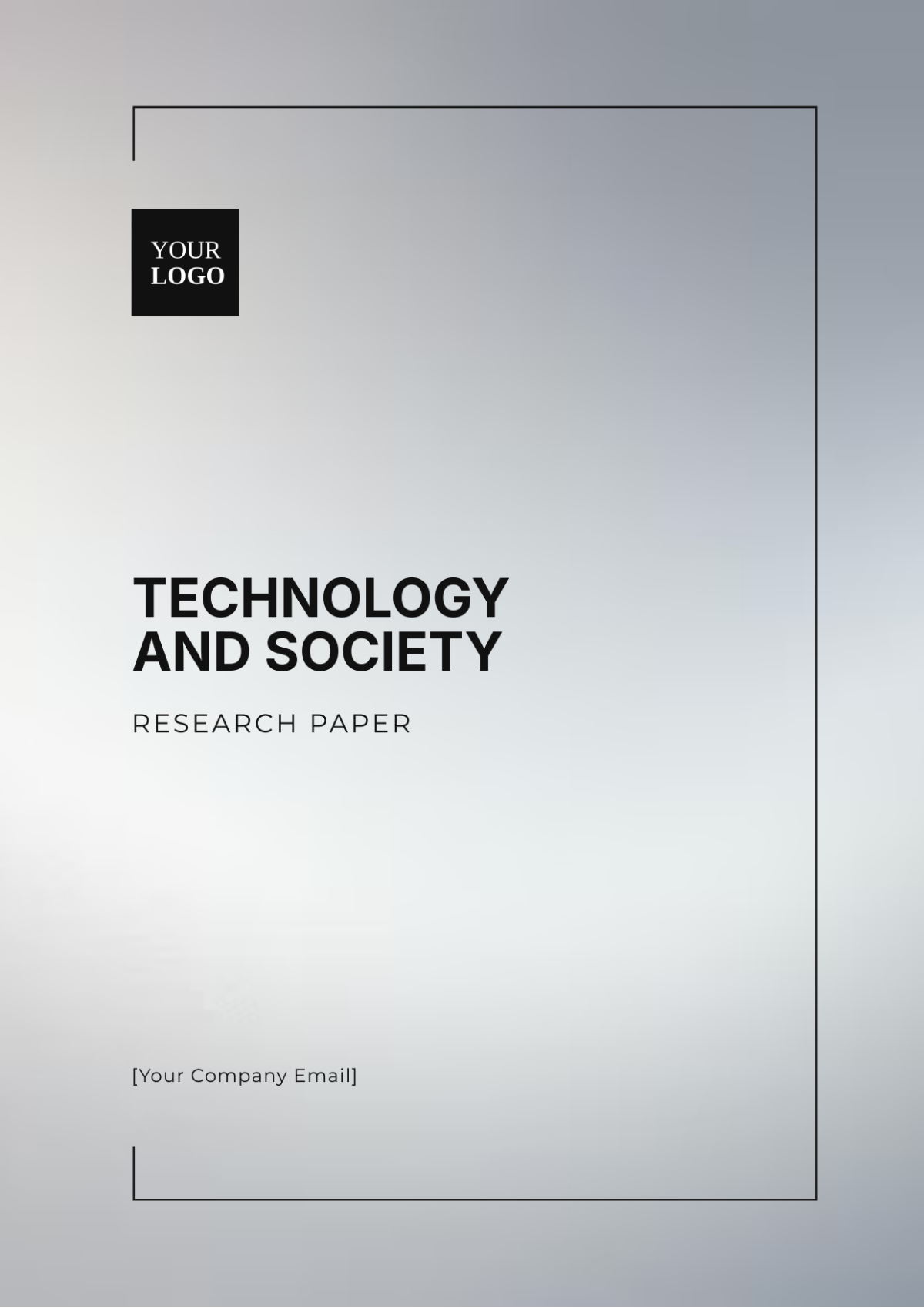
Prepared By: [Your Name]
I. Abstract
This paper investigates the dual impact of social media platforms on interpersonal communication, focusing on both the opportunities for enhanced connectivity and the challenges associated with diminished face-to-face interactions and privacy concerns. Utilizing a mixed-methods approach, including quantitative surveys and qualitative interviews, the study reveals that while social media fosters relationships and information sharing, it also contributes to significant communication skill erosion and privacy issues. The findings suggest a need for balanced strategies to harness the benefits of social media while mitigating its drawbacks.
II. Introduction
The rapid evolution of social media over the past two decades has drastically transformed how individuals communicate. Platforms like Facebook, Twitter, and Instagram have become central to personal and professional interactions, reshaping the dynamics of relationships and communication skills. This paper explores these transformations, analyzing how social media has redefined personal connections, professional networking, and overall communication competencies. It aims to provide a nuanced understanding of social media's role in modern communication and propose strategies to address the associated challenges.
III. Literature Review
A. The Emergence of Social Media
The development of social media platforms has its roots in the early 2000s, with Facebook's debut in 2004 and Twitter's launch in 2006 marking significant milestones in the digital communication landscape. By 2024, social media engagement has reached approximately 4.7 billion users worldwide (Smith & Lee, 2023). This period has seen a transition from rudimentary online forums and chat rooms to sophisticated, feature-rich platforms that offer a range of communication tools (Johnson, 2022).
B. Effects on Personal Relationships
Doe and Brown (2023) identified that 65% of participants believe social media positively influences personal relationships by bridging geographical gaps and maintaining connections that might otherwise dwindle. However, Smith (2022) highlights a concern: 40% of individuals report a deterioration in face-to-face communication skills, which they attribute to the increased reliance on digital interactions for maintaining relationships.
C. Social Media and Professional Communication
In the professional realm, social media has become a powerful tool for networking and career advancement. Brown and Davis (2024) found that 70% of LinkedIn users attribute improved career prospects to their engagement on the platform. Despite this, Johnson (2022) notes that 30% of employees feel the informal nature of social media interactions can compromise professional decorum, raising concerns about professionalism in a digital context.
IV. Methodology
The study employed a mixed-methods approach to provide a comprehensive analysis of social media's impact:
Quantitative Survey: An online survey was administered to 500 participants aged 18-65, designed to gather data on social media usage patterns, changes in communication habits, and perceived impacts on both personal and professional relationships. The survey included questions on frequency of use, types of interactions, and self-reported changes in communication skills.
Qualitative Interviews: Thirty in-depth interviews were conducted to gain deeper insights into individual experiences with social media. These interviews focused on participants’ personal stories regarding social media’s influence on their relationships and communication skills, as well as their views on privacy and security.
V. Results
A. Positive Impacts
Enhanced Connectivity: A substantial 78% of survey respondents reported that social media significantly aids in staying connected with friends and family, especially across long distances (Doe & Brown, 2023). This connectivity allows individuals to maintain relationships that might otherwise be lost due to geographic separation.
Ease of Information Sharing: According to 67% of participants, social media platforms facilitate effortless sharing of life updates and information, making it easier to stay informed about others’ lives and share personal milestones (Smith & Lee, 2023).
B. Negative Impacts
A decline in Face-to-Face Interaction: Approximately 55% of respondents indicated a noticeable reduction in face-to-face interactions, attributing this trend to the convenience and preference for digital communication over personal meetings (Brown & Davis, 2024). This shift raises concerns about the erosion of crucial interpersonal skills such as non-verbal communication and empathy.
Privacy and Security Concerns: Privacy issues were highlighted by 45% of participants, who expressed concerns about data security and the potential for cyberbullying. Instances of data breaches and misuse of personal information on social media platforms further exacerbate these concerns (Johnson, 2022).
VI. Discussion
The study reveals that social media offers significant benefits, including improved connectivity and streamlined information sharing. However, these advantages come with notable challenges, such as reduced face-to-face communication skills and increased privacy risks. The erosion of interpersonal skills and privacy concerns suggest a need for strategies that promote the balanced use of social media while fostering traditional communication methods and enhancing data security measures.
VII. Conclusion
Social media has significantly transformed how people interact, offering benefits like improved connectivity and information sharing but also causing reduced in-person communication and privacy risks, necessitating strategic solutions to harness its advantages and reduce its downsides. Future studies should aim to create frameworks that balance digital and real-world interactions and bolster privacy safeguards, ensuring social media remains a useful resource without diminishing communication quality or personal security.
- 100% Customizable, free editor
- Access 1 Million+ Templates, photo’s & graphics
- Download or share as a template
- Click and replace photos, graphics, text, backgrounds
- Resize, crop, AI write & more
- Access advanced editor
Explore the intersection of technology and society with Template.net's Technology and Society Research Paper Template. This editable and customizable template includes sections for a theoretical framework, case studies, and societal impact analysis. Editable in our AI Editor Tool, it provides a structured approach to documenting your research, ensuring a clear and comprehensive presentation of your findings.



